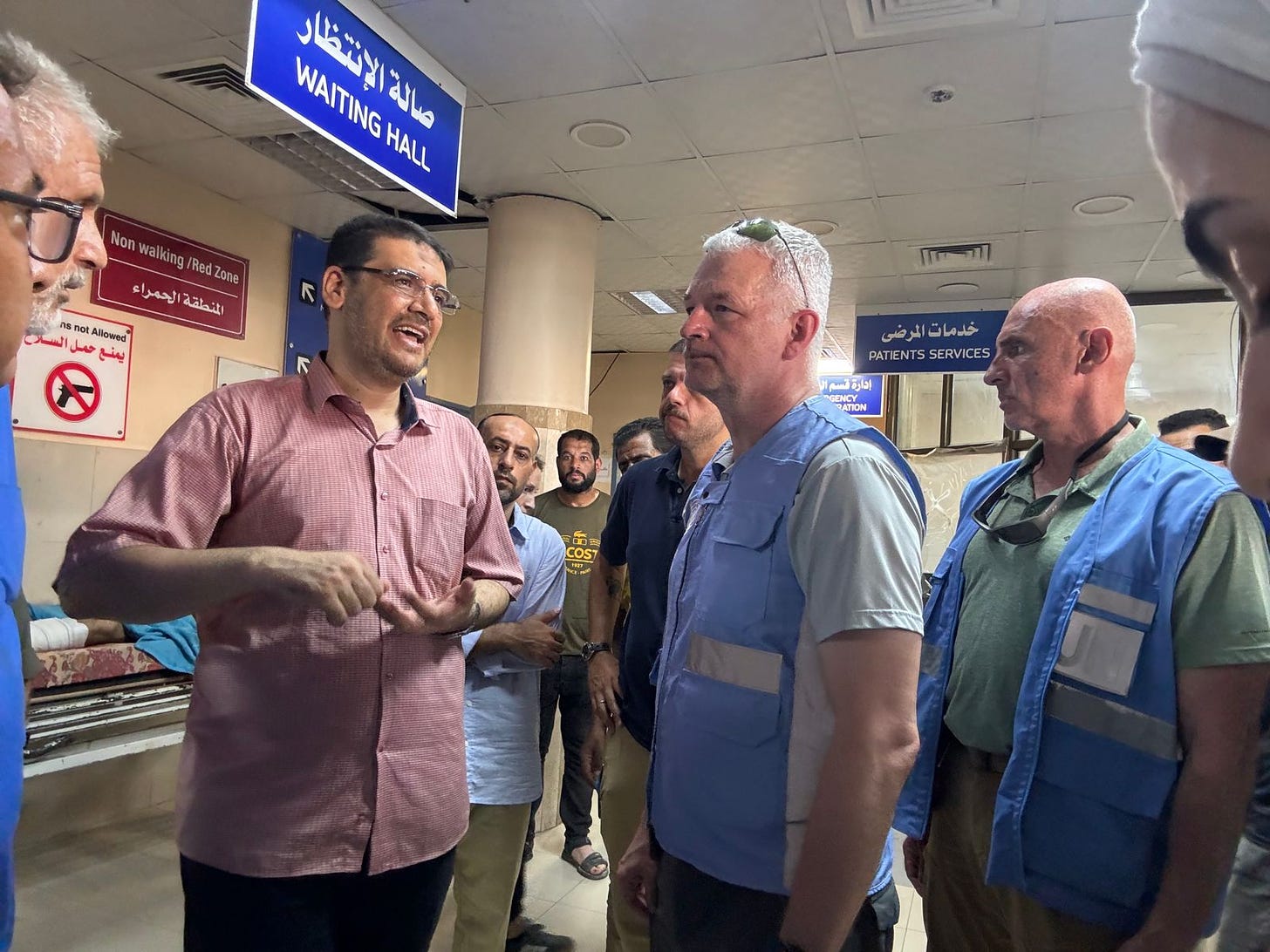Israel’s Latest Massacres
Latest Attacks Have Exacerbated the Crisis in Gaza’s Healthcare Facilities

Brutal attacks by the Israeli Occupation Forces (IOF) have, yet again, intensified pressure on the few functional hospitals in the Gaza Strip. Health workers at Nasser Medical Complex reported harrowing scenes following attacks on Khan Younis on 13 July, where they received over 100 new casualties despite the hospital already operating over capacity.
“At one point, you had people in the hallway moaning in pain,” said Amy Kit-Mei Low, Doctors Without Borders (MSF) project medical referent. “Even though they had [wound] dressings, the dressings were oozing blood. […] the hospital was trying to cope, but it can barely cope with normal cases.”
UNRWA representative Scott Anderson described the scene at the hospital, stressing the lack of beds, disinfectants, and electricity to run ventilation at Nasser. “I saw toddlers who are double amputees, children paralyzed and unable to receive treatment, and others separated from their parents. I also saw mothers and fathers who were unsure if their children were alive,” Anderson said.
In addition to the relentless IOF attacks, including those targeting healthcare facilities that have killed 2.5% of Gaza’s health workforce since October 7, hospitals are also struggling with aid delivery restrictions imposed by Israel. Since the beginning of the war on Gaza, and especially since the beginning of May, the flow of essential goods to hospitals has been drastically reduced. Hospitals are particularly burdened by the ban on certain medications, including anesthetics, strong painkillers, and even diabetes drugs. Recently, a consortium of organizations providing health care in Gaza warned of a shortage of antibiotics safe for pregnant and breastfeeding women due to the blockade.
Despite having hundreds of kilos of aid ready for dispatch, supplies are blocked from reaching hospitals and health centers. The blockade is reinforcing severe food shortages, exacerbating the health crisis. Reports indicate that Israel prioritizes commercial trucks over humanitarian ones at crossings, leaving people with limited and extremely expensive food options. The same consortium of organizations reported that sugary drinks are currently the most affordable food in Gaza.
Famine is spreading rapidly across all regions of Gaza. Nearly 10,000 pregnant and breastfeeding women are on the verge of famine, and 7,000 are already living in famine conditions, according to the United Nations. As a result, more babies are being born preterm and underweight.
For older children, mental health persists as a critical issue. The Gaza Community Mental Health Program (GCMHP) recently estimated that half a million children in Gaza require mental health support. Displaced families report that children are struggling with bedwetting, continuous shaking, violent outbursts, and likely PTSD due to living under constant attack.
GCMHP warns that mental health is also deteriorating among adults, as needs in Gaza far exceed available services. Many people are becoming emotionally numb as a consequence of not being able to receive any mental health support, and are disillusioned by the international community’s failure to halt the genocide perpetrated by Israel. GCMHP teams have encountered people in a state of emotional stagnation, recounting the loss of entire families as if it were a routine event. While scaling up mental health services is crucial for addressing this, GCMHP and other organizations insist that this will not be enough without a ceasefire.




